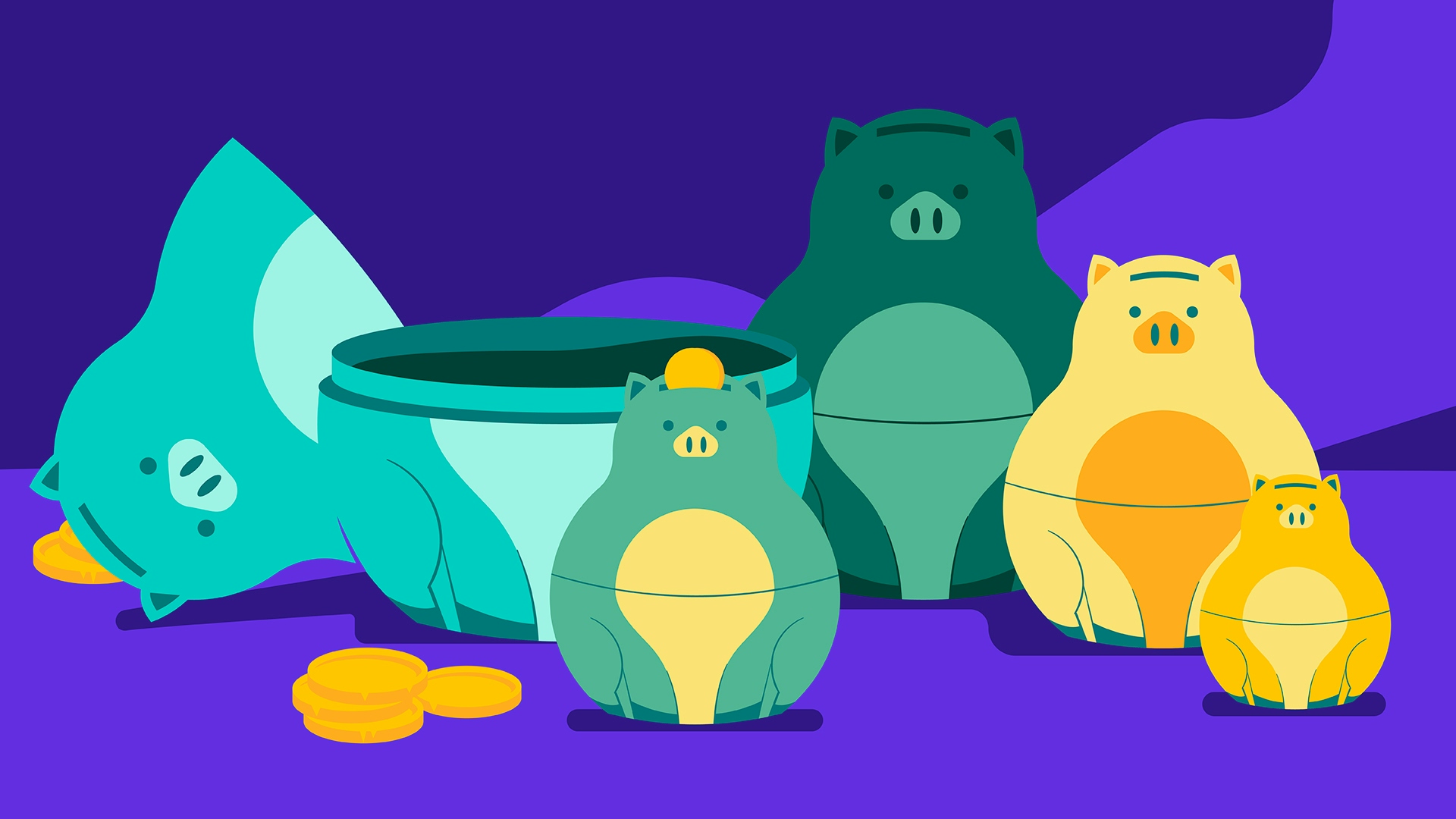The Story
Investing can be intimidating. But you’ve got to do it. It’s your ticket to building real wealth. And making your money work for you.
Start from the beginning. How does investing work?
Investing is how your bank account has babies. Basically, you buy an asset — which could be stocks, bonds, real estate, art, even fancy sneakers — where it (hopefully) makes a profit. Then cash out. The goal is to end up with more money than when you started.
Sounds kinda risky.
You’re not wrong. There’s no guarantee that you won’t lose any money you invest. But NOT investing is risky, too. Because inflation. That’s the gradual increase in what it costs to buy everyday items (think: food, clothes) over time. It’s why the price you pay on a new car is much higher than what your grandparents paid for a set of wheels 20 years ago. So when your money sits in the same spot for a long time, not growing, its value actually goes down. Not good. To make up for inflation, your money should be growing on its own. Hi, investing.
So...buy anything I think will be worth more later, and that’s investing?
Pretty much. But keep in mind that the risks are different depending on what you buy. Looking at how certain types of investments have performed in the past is one way to decide where you feel comfortable putting your money. Typically, the bigger the risk, the bigger the reward, er, return you may get. Ask any Bitcoin investor. On the other hand, there’s bonds — generally considered safe, but not very rewarding. Stocks are in the middle. They’re thought of as one of the best ways to invest for the long term.
Tell me more about stocks.
A stock is a tiny share of a company. When that company becomes more valuable, its stock price can go up. If you own that stock, you get a piece of the pie. The opposite is true, too. If that company doesn’t do so hot, you could lose money. The stock market loves to keep things interesting, so other things affect stock prices, too...from geopolitical drama to tweets from politicians or business leaders. Fortunately, the stock market has a reputation for comebacks. Historically, the S&P 500 index (that’s a collection of 500 big US company stocks) has gained an average of 10% per year. Yes, that includes big down years like during the Great Recession. So if you can stick it out, the odds of making money in the long run by investing in stocks are in your favor.
How many stocks should I own?
Up to you and your risk tolerance. But there are some general guidelines you can consider as a starting point. If you're investing for retirement, you can use the Rule of 110. Subtract your age from 110, and that's the portion of your portfolio that should be invested in stocks. Example: if you're 35 years old, 75% of your investment account should be stocks and 25% should be bonds. If that sounds too risky for your taste, adjust it.
When should I start investing?
It’s a good idea to have some emergency savings. Plus a plan to pay off high-interest debt. After that, the earlier you get in the game, the more time you have to make money. That’s thanks to something called compounding — or when your money starts making money. It’s like a snowball. Your investment account balance grows bigger and bigger because your earnings generate more earnings by building on each other. So your money’s doing the hard work. And you can sit back and relax.
theSkimm
Investing is an important money move for anyone who doesn’t want their cash to lose value over time. Aka everyone. Set yourself up for success by understanding what you’re investing in (and how much risk comes along with it) and staying in it to win it. Even if things get a little bumpy. Pro tip: if daily market moves make you queasy, it’s okay to close your eyes and not check your investments every day.
Subscribe to Skimm Money
Your source for the biggest financial headlines and trends, and how they affect your wallet.
